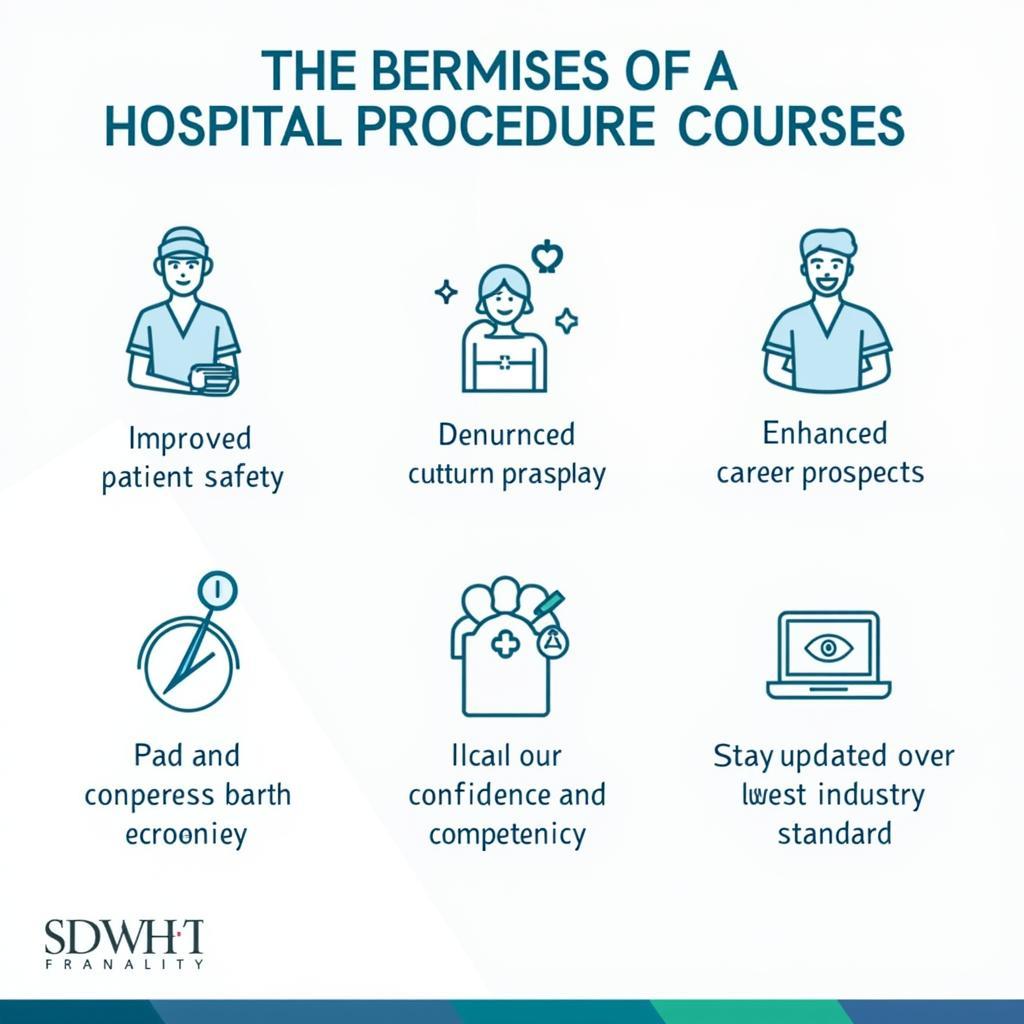Hospital Procedure Courses are an essential part of professional development for healthcare professionals who want to stay up-to-date with the latest advancements and best practices. These specialized training programs provide in-depth knowledge and hands-on experience in various medical procedures, ensuring optimal patient care and safety.
 Hospital Procedure Training
Hospital Procedure Training
Why Are Hospital Procedure Courses Important?
In the ever-evolving landscape of healthcare, staying current with the latest procedures and technologies is paramount. Hospital procedure courses bridge the gap between theoretical knowledge and practical application, equipping healthcare professionals with the skills and confidence needed to perform procedures accurately and efficiently. These courses cover a wide range of procedures, from basic life support to advanced surgical techniques, catering to the diverse needs of healthcare professionals across various specialties.
 Benefits of Hospital Procedure Courses
Benefits of Hospital Procedure Courses
Who Benefits from Hospital Procedure Courses?
Hospital procedure courses cater to a diverse group of healthcare professionals, including:
- Nurses: Enhance their skills in administering medication, wound care, IV therapy, and other essential nursing procedures.
- Medical Assistants: Gain proficiency in assisting physicians with procedures, taking patient histories, and performing basic clinical tasks.
- Emergency Medical Technicians: Master life-saving techniques, trauma care, and emergency procedures.
- Surgical Technologists: Develop expertise in surgical instrumentation, sterilization techniques, and assisting surgeons during procedures.
What to Expect in a Hospital Procedure Course
Hospital procedure courses typically combine theoretical instruction with hands-on training in a simulated clinical environment. Participants learn through a variety of methods, including:
- Lectures and Presentations: Provide a comprehensive overview of the procedure, its purpose, anatomical considerations, potential complications, and best practices.
- Demonstrations: Allow participants to observe the procedure being performed by experienced instructors, highlighting key steps and techniques.
- Simulations: Offer a safe and controlled environment for participants to practice the procedure on mannequins or simulated patients, receiving immediate feedback and guidance from instructors.
- Case Studies: Facilitate critical thinking and problem-solving skills by analyzing real-world scenarios and applying learned concepts.
Choosing the Right Hospital Procedure Course
When selecting a hospital procedure course, consider the following factors:
- Accreditation: Ensure the course is accredited by a reputable organization, guaranteeing high-quality education and training.
- Curriculum: Review the course outline to ensure it aligns with your learning objectives and covers the specific procedures relevant to your profession.
- Instructors: Look for courses taught by experienced healthcare professionals with extensive practical knowledge and teaching expertise.
- Facilities: Choose a course that provides access to state-of-the-art simulation labs and equipment, mirroring real-world clinical settings.
Conclusion
Investing in hospital procedure courses is an investment in your professional growth and the well-being of your patients. By acquiring the latest skills and knowledge, you’ll be empowered to deliver exceptional patient care while staying ahead of the curve in the ever-evolving healthcare industry. Contact our team at 02437655121, email us at [email protected], or visit us at 298 Đ. Cầu Diễn, Minh Khai, Bắc Từ Liêm, Hà Nội, Việt Nam to learn more about our comprehensive hospital procedure courses and advance your healthcare career.